Progarchives.com has always (since 2002) relied on banners ads to cover web hosting fees and all.
Please consider supporting us by giving monthly PayPal donations and help keep PA fast-loading and ad-free forever.
/PAlogo_v2.gif) |
Japanese Progressive Rock presented by DamoX |
Post Reply 
|
Page <1 2122232425 52> |
| Author | ||
DamoXt7942 
Forum & Site Admin Group 
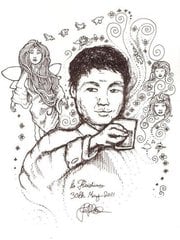
Avant/Cross/Neo/Post Teams Joined: October 15 2008 Location: Okayama, Japan Status: Offline Points: 17459 |
 Post Options Post Options
 Thanks(0) Thanks(0)
 Quote Quote  Reply Reply
 Posted: September 22 2010 at 05:16 Posted: September 22 2010 at 05:16 |
|
 Thanks daydreamer for your making a correction.  EDIT: And the paragraph has been revised. Edited by DamoXt7942 - September 22 2010 at 05:52 |
||
 |
||
DamoXt7942 
Forum & Site Admin Group 

Avant/Cross/Neo/Post Teams Joined: October 15 2008 Location: Okayama, Japan Status: Offline Points: 17459 |
 Post Options Post Options
 Thanks(0) Thanks(0)
 Quote Quote  Reply Reply
 Posted: September 25 2010 at 19:42 Posted: September 25 2010 at 19:42 |
|
|
An interesting Japanese Avantgarde Rock outfit ... recommended by our RIO / Avant Specialist Team.
  LUNAPARK ENSEMBLE, with various appearances, and mystically loud voices in their life In early 1980s, Tetsuto KOYAMA (bass) came across a pop-punk singer named RORIE on the stage of an old rock cafe Muon in Yokohama. Her loud voices could ring his bell soon and plant a strong intention to form a duo with her in his heart. On the other hand, Takashi Satoh, the owner of Pinakotheca Records, called Tetsuto for recording a solo single of Wataru OHKUMA (guitars, keyboards; ex-Zettai Reido) in 1982. Tetsuto got so immersed in Wataru's avantgarde guitar solo or performance that he finally got determined to form a rock quartet. In the autumn of 1982, LUNAPARK ENSEMBLE were formed as a four-piece rock band and released their debut EP via Cragale Records, Muon's independent label. (This EP was included in the latter of their reissued album.) Although sadly Tetsuto resigned from this outfit for the reason of discrepancy of soundscape among the members in the following year, they could get more avantgarde and create works of originality around Wataru OHKUMA and RORIE. In the summer of 1984 LUNAPARK ENSEMBLE released a 7-inch single "Kawaii Watashi No Doppelgänger (My Pretty Doppelgänger)", featuring the brass & horn section or some junk instruments, in collaboration with some session musicians like Tori Kudo (trombone) or Masami Shinoda (saxophone). Recruiting the third LUNAPARKer Shin'ya KIMURA (drums, guitar,saxophone), they intentionally deviated from the 'as-it-is-said' normal style of rock band and broke an accepted theory in rock scene. In the meantime they released one and only mini LP "Mushi-kui Mandala" (1986), that is even now much talked about as a masterpiece of Japanese Avantgarde Rock scene. In the late 1980s LUNAPARK ENSEMBLE came back as a typical rock band but could not keep their activity for long and were disbanded in 1989. RORIE left the music scene soon but Wataru is still active as a session multi-player, sometimes gigging with Tetsuto in his band A-Musik. Their mini LP "Mushi-kui Mandala" was reissued in 1998 featuring an EP in their early days and some extra unreleased tracks via a Japanese independent label Wax Records.  Mushi-kui Mandala (1986) - LUNAPARK ENSEMBLE (reissued in 1998 via Wax Records) LUNAPARK ENSEMBLE were a Japanese avantgarde-experimental sound project and simultaneously might be Rorie's self-expressionism. This reissued album "Mushi-kui Mandala" (in English, "A Vermiculated Mandala") is not simply reissued one but something like a compiled one with the mini-album plus their debut EP, the 7-inch single donut, and some extra or unreleased tracks. What I can say through the entire album, Rorie should be a strong and self-asserted or centered girl, with her loud voices and original way on singing songs. Do not know why she has left the music scene but it's a pity without any suspicion. Anyway, the main part of this album (from Track 2 to 10) sounds like Avant Folk (not Rock) to me, with some junk percussive stuffs or light-sounded instruments (like a soprano recorder). This music style can remind me Maher Shalal Hash Baz by Tori Kudo - maybe because LUNAPARK had recorded a single "Kawaii Watashi No Doppelgänger" with collaboration from Tori's trombone two years before? Very simple but eccentrically scattered songs are in, where only Rorie did Rock by her voices centering herself. In 1986 this avant-folksy music style could be very original and unrivaled, but sadly not enough for every progressive rock freak I guess. Oh rather, the latter part of this "compilation" is their eponymous EP itself, that can be more of progressive rock than the chief manager here. Suppose Tetsuto might push pop & ROCK elements into them, and their EP could be well-balanced as an Avantgarde Progressive Rock one. And the most impressive song for me is the first track "The Scramble Suite" ... featuring a strange pop, an ethnic shower, a funky rock, mystic fruits ... produced by Fred Frith (wow!). This song can include almost all of LUNAPARK essence surely. Wataru's sensitive Acid Folk, Rorie's mysterious tour, Tetsuto's hard-edged granite Rock ... all are excellently shining. You can see various appearances of LUNAPARK ENSEMBLE in this "compilation". Please enjoy. Thank you for reading this blog. |
||
 |
||
DamoXt7942 
Forum & Site Admin Group 

Avant/Cross/Neo/Post Teams Joined: October 15 2008 Location: Okayama, Japan Status: Offline Points: 17459 |
 Post Options Post Options
 Thanks(0) Thanks(0)
 Quote Quote  Reply Reply
 Posted: October 02 2010 at 22:41 Posted: October 02 2010 at 22:41 |
|
|
A Japanese novel project TACO got started in a live house Kichijoji Minor, managed by Takashi Satoh, the owner of Pinakotheca Records later.
 A midnight improvised gig series named Aiyoku-Jinmin-Juji-Gekijo had been held in Kichijoji Minor under the supervision of Tamio Shiraishi. Harumi YAMAZAKI, a participant in the gig, hit it off with Tamio and formed an irregular rock unit TACO in 1981. Although they tried to start recording after some gigs in Tokyo, they had a heated dispute about the material or the production, and finally Tamio resigned from the unit. For escape from this predicament, Harumi called lots of his music mates and recorded TACO's debut album. Some renowned artists credited - e.g. Ryuichi Sakamoto (Yellow Magic Orchestra), Koji Ueno (Guernica), Machizo Machida (a well-known Japanese novelist later) - could create a great sensation and the sales of this album reached over four thousand copies (It's said that the telephone of the distributor Teregraph could not stop ringing night and day). However some discriminatory phrases or criticism of Japanese Emperor should cast a dark shadow over TACO and Pinakotheca Records regretfully. Later TACO released a live album and soon disappeared because of Harumi's addiction to illegal agents or the premature death of Junko 'Lolita' Shinozaki, a partner & lover of Harumi, but TACO's spirit has been much talked about in Japanese independent rock scene. The album 'TACO' was reissued as a compilation with their first and second albums in 1994 via SSE Communications (in 2010, it has been discontinued and priced at $200!).  Taco (self-titled) (1983) - TACO with many artists! Their key phrase is "Sorry to be born in this world", that can sometimes be heard in this album. Very nervous, violent, aggressive atmosphere we can feel in this work. I can imagine the album "Taco" might be the life of Harumi YAMAZAKI, that was filled with talent for rock music, sexual desire, opposition against the society, and mind-expanding agents. Harumi could strike his "problematic" life onto his creation without sweeping anything. Of course, we do understand such illegal stuffs must be banned indeed, but his attitude and opinion 'for music' can be approved more and more - he easily could create such an avantgarde and controversial bizarrerie what nobody could do in those days, with much commercialism (he advertised himself and his products via his columns in an underground magazine) and lots of renowned musicians (especially Ryuichi Sakamoto and Machizo Machida). He could arouse a controversy storm in Japanese independent music scene with such a weird gem. Listen first of all and you can find some painful groan, moan, shout with crazy, dirty mixing in the first track, maybe under withdrawal symptoms. A very cynical and straight way as he represented his silly sickness and painful life, already able to feel? And what a weird song the third track "Kirara" is ... Machizo madly and cynically sang (no, shouted) with lots of discriminatory words and phrases. Actually an anti-discrimination association has impeached the song, album, and Pinakotheca Records. But there may be not only discrimination but also criticism against some associations asking for money it sounds. They should be cynics I'm sure. And you cannot help feeling his musical talent in "Enigram" or "Nue", a short classical cotton and a Japanese-Enka-ish tragic darkside respectively. "Vomiting Center Is The World Origin" includes some dirty, sodomic lyrics into itself (written by Lolita Junko?) but such a carnivalisque element in the song you can realize and appreciate seriously. "Hostage Funk" can be fittest for so-called Avantgarde progressive methinks ... with taperecorder effects or meaningless female whispers, based on strict funky rhythms. The second one "Cannot Get Your Patience Of A Saint Even Today" is a pop song, but the lyrics sung by a pretty singer (suppose :-P) Izumi Kurisawa are ... oh, man ... cannot explain in detail but full of illegal expression. You can easily realize that Ryuichi Sakamoto composed "Secret Emperor Magic" (lyrics by Harumi ... just criticism against Japanese Emperor as the most responsible person for the War). As above mentioned, this album should be the most problematic and controversial in those days in Japan but at the same time I'm sure Harumi could leave one of the most impressive music production for us younger rock fans. As a Japanese Avantgarde progressive rock fan, I cannot avoid this brilliant gem.  Thank you for reading this blog. |
||
 |
||
Luca Pacchiarini 
Forum Senior Member 
Joined: March 08 2009 Location: home Status: Offline Points: 530 |
 Post Options Post Options
 Thanks(0) Thanks(0)
 Quote Quote  Reply Reply
 Posted: October 05 2010 at 07:01 Posted: October 05 2010 at 07:01 |
|
|
Excellent work as usual, Damo :)
can you tell me the theme of the song "Isshoku Sokuhatsu" by Yonin Bayashi?
I would like to know what that great song is about
the same applies for Doronamire by Datetenryu
thanks
Luca
|
||
 |
||
GaryB 
Forum Senior Member 
Joined: April 17 2009 Status: Offline Points: 451 |
 Post Options Post Options
 Thanks(0) Thanks(0)
 Quote Quote  Reply Reply
 Posted: October 05 2010 at 14:09 Posted: October 05 2010 at 14:09 |
|
|
From the seventies, I like Stomu Yamash'ta. I recall some great guitar / violin segments (Gary Boyle
from Isotope and Stomu's wife? sister?) and Stomu's solid percussion.
Haven't been able to get into the LP with Stevie Winwood though, I need to give it another listen.
|
||
 |
||
DamoXt7942 
Forum & Site Admin Group 

Avant/Cross/Neo/Post Teams Joined: October 15 2008 Location: Okayama, Japan Status: Offline Points: 17459 |
 Post Options Post Options
 Thanks(0) Thanks(0)
 Quote Quote  Reply Reply
 Posted: October 07 2010 at 03:11 Posted: October 07 2010 at 03:11 |
|
 Errr, Japanese "Isshoku-Sokuhatsu" is ... maybe ... "Close To The Edge" or "Touch And Go"? The song is much different from another, of course.  |
||
 |
||
DamoXt7942 
Forum & Site Admin Group 

Avant/Cross/Neo/Post Teams Joined: October 15 2008 Location: Okayama, Japan Status: Offline Points: 17459 |
 Post Options Post Options
 Thanks(0) Thanks(0)
 Quote Quote  Reply Reply
 Posted: October 07 2010 at 03:14 Posted: October 07 2010 at 03:14 |
|
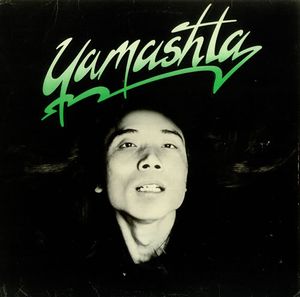  Ehhh, are you Gary Boyle? Fantastic!  |
||
 |
||
DamoXt7942 
Forum & Site Admin Group 

Avant/Cross/Neo/Post Teams Joined: October 15 2008 Location: Okayama, Japan Status: Offline Points: 17459 |
 Post Options Post Options
 Thanks(0) Thanks(0)
 Quote Quote  Reply Reply
 Posted: October 07 2010 at 03:15 Posted: October 07 2010 at 03:15 |
|
|
A Japanese patchwork-scratched rock project I do recommend here!
  PUNGO were a short-lived fluctuant Avant / Jazz Rock project around a female multi-instrumentalist (violin, accordion, piano, or organ) & vocalist named Yuriko SUGANAMI, an alto-saxophonist Masami SHINODA, and a bassist Jiro IMAI. Masami got immersed in Yuriko's violin as a member of Machinegun Tango, Tori Kudo's band, and persuaded her to form a musically diversified outfit. The outfit's name PUNGO is a mixture of Tango and Punk, but they have not only these two elements but various kinds of essence - jazz, blues, ethnic, folk, etc. etc., and they said the most important point for them was 'Japanese mind of music'. PUNGO tried to involve lots of musician in the project, including Akihiro ISHIWATARI (guitars, drums), Yukio SATOH, Yoshio KUGE (drums, percussion), and so on (even each member cannot remember all musician joining PUNGO project). They had been active actually only for a year (from 1980 to1981) and been disbanded (it's said one of the reasons is Yuriko's burnout). PUNGO's material in some live acts were compiled into two albums - '1980 - 1981' (1982) and 'Waltz' (1995). Masami joined JAGATARA as the key player of the horn section later, but sadly passed away at the age of 34 in 1992.  Waltz (1995) - PUNGO's live compilation We can get drenched with PUNGO's music flood in PUNGO-ra box. Directly we can realize what they had meant to do, especially through Yuriko's strong intention and inquisitive mind. Actually, I consider PUNGO project should be such as a battle among plays, musical viewpoints, and curiosity of all players. Why should they be disbanded after a year play? Suppose they could not help sinking themselves under remarkably tense situation ... This album "Waltz" is a compilation of their live material, and listening to this can easily notify us that there's less similarity among 14 tracks, except keen tension and overstimulated nerve through the whole album. Various sound essence can be in, and Yuriko's sharp-edged violin, dry-fruity accordion, painful piano, and unemotional voices ... all can be fit for every song and draw out the strong characteristic of every song. And Masami's freaky anarchy saxophone solo cannot be ignored of course. His backbone might be jazz music indeed, but he could make every song avantgarde by his funky kinky saxophone play - later he joined JAGATARA, a Japanese jazz-funk-rock project, and could upgrade their music skill, content, and soundscape ... feasibly. Under any circumstances, we can understand their music theory cannot be categorized easily. Their seriousness, strict attitude, and tense plus tense condition for music ... obviously those were in their mind. Jazz, ethnic, avant, blues, tribalism, and rock - enjoy completely.  Thank you for reading this blog. |
||
 |
||
GaryB 
Forum Senior Member 
Joined: April 17 2009 Status: Offline Points: 451 |
 Post Options Post Options
 Thanks(0) Thanks(0)
 Quote Quote  Reply Reply
 Posted: October 07 2010 at 08:57 Posted: October 07 2010 at 08:57 |
|
|
Well, I am a guitar player (and he and I have the same initials) but unfortunately.....
The seventies jazz/rock/fusion style has long been my favorite and I was happy to add four albums by Stomu to my collection. I believe I have to pick Freedom Is Frightening as my favorite.
|
||
 |
||
DamoXt7942 
Forum & Site Admin Group 

Avant/Cross/Neo/Post Teams Joined: October 15 2008 Location: Okayama, Japan Status: Offline Points: 17459 |
 Post Options Post Options
 Thanks(0) Thanks(0)
 Quote Quote  Reply Reply
 Posted: October 21 2010 at 02:52 Posted: October 21 2010 at 02:52 |
|
 And I've updated the sleeve of "Freedom ... " here.  |
||
 |
||
DamoXt7942 
Forum & Site Admin Group 

Avant/Cross/Neo/Post Teams Joined: October 15 2008 Location: Okayama, Japan Status: Offline Points: 17459 |
 Post Options Post Options
 Thanks(0) Thanks(0)
 Quote Quote  Reply Reply
 Posted: October 21 2010 at 02:52 Posted: October 21 2010 at 02:52 |
|
|
Well, how about this outfit mates?
 A mysterious sticker used on the promotion of EP-4's debut album A music tactician in Japanese underground rock scene Kaoru SATOH (voices, drums, percussion; also known as a member of Taco, as previously mentioned) was one of regular customers in Club Modern, a discotheque in Kyoto. His strong and clear intention for the purpose of creating 'cool, no-sweat funk' could let himself form a Techno-Psychedelic outfit EP-4 with some music mates - Banana KAWASHIMA (keyboards), Tatsuo KOHKI (guitars), Kiyoshi 'Sanjoh-Dohri' ISOGAWA (drums), Yung TSUBOTAJ (percussion), and Koh SAKUMA (bass) - in Club Modern around him in June 1980. They exerted themselves to represent rock music in a 'extremely processed' manner, with a voice effector or mechanical sound creation, that could be appreciated in Japanese Club Music scene in those days. In early 1980s, EP-4 were much approved on a gig named Urban Synchronicity in Kyoto (1981), or their 'Emergency Landing' tour in some metropolises in Japan (1982). And finally in 1983 their reputation as a Japanese underground rock outfit had got unassailable upon the event Scanning Pool. In the same year EP-4 released an album 'Lingua Franca-1 (Showa Hogyo)', by remarkably impressive (and eccentric) promotion ... they pasted dozens of stickers written only 'EP-4 5.21' on them at random all around Japan (it's said on a TV show a renowned singer wore a T-shirt with the sticker on). This phrase 'EP-4 5.21' meant that EP-4's debut album would be released on May 21st, 1983. However, the release of this album was banned by pressure of Japan Nation because of the album's subtitle ('Showa Hogyo' means the death of Emperor Showa). At last they released the album with replacement of the subtitle with 'Showa Taisha' in 1983 ('Showa Hogyo' was released as a supplement appended to their booklet). EP-4 gigged around Japan and released some cassette EPs later, but were disbanded in 1988. Tatsuo and Kiyoshi have passed away sadly.  Lingua Franca-1 (Showa Taisha) (1983) - EP-4 (A picture of the Metal Baseball Bat Murder spot (Kanagawa, 1980) was used on the sleeve.) Here was such an approach for Psychedelic Progressive / Space Rock like them, I'm very amazed. As to EP-4, almost only "Guerrilla strategy with dozens of stickers for their promotion" could get a great deal of attention in Japan. Indeed that was an eccentric and mysterious one, but let me emphasize that we should keep our eyes upon their "musical" strategy, with multiplex mechanical effects on voices, keyboard sounds, or so. Their passion or hearty feeling might be veiled under stingingly cold sound structure. Contrary to their (actually Kaoru's) funky rhythmical beats, the subliminal effects via their soundscape are like muddy water, that can easily get our feet and brains trapped. Kaoru obviously used such a different manner for representing his music message from Yellow Magic Orchestra or Kraftwerk. And I wonder why nobody considered EP-4 should get somewhat influenced by Japanese Psychedelic Progressive scene ... the guitar solo uses a spice of extreme feedback effects like Takashi Mizutani, and the songs in this album may be studded with some samples via Taj-Mahal Travellers' one (at least for me?). They (especially Kaoru) seem to care about elderly Japanese Progressive artists, even in their funky style. We can enjoy the A side of this album (able to be called as "Lingua Franca Suite") with keeping our eyes upon such a point of view. Or did they do their original Funkedelic (Not Funkadelic) Rock? ... Anyway, very amazing and mysterious for us seriously.  Thank you for reading this blog. |
||
 |
||
TODDLER 
Forum Senior Member 
VIP Member Joined: August 28 2009 Location: Vineland, N.J. Status: Offline Points: 3126 |
 Post Options Post Options
 Thanks(0) Thanks(0)
 Quote Quote  Reply Reply
 Posted: October 25 2010 at 10:17 Posted: October 25 2010 at 10:17 |
|
|
Stomu Yamashta is my God. Not the band GO but, his first 5 releases were a major contribution to the golden era of prog. He is an amazing genius that conducts orchestras today. What a foundation he laid for the progressive 70's. He was highly influential to Brand X and others. There is an influence of Soft Machine in his early material but yet so original.
|
||
 |
||
TODDLER 
Forum Senior Member 
VIP Member Joined: August 28 2009 Location: Vineland, N.J. Status: Offline Points: 3126 |
 Post Options Post Options
 Thanks(0) Thanks(0)
 Quote Quote  Reply Reply
 Posted: October 25 2010 at 11:14 Posted: October 25 2010 at 11:14 |
|
|
I find Stomu Yamashta's Red Buddha Theatre to be grand. The soundtrack to "The Man From The East". Don't let the term soundtrack discourage you. With all due respect, the music is from within and with a character like Yamashta you are taken on a ride. If all you have heard is GO then you must prepair yourself for a different journey. There are jams on his early albums but there is more emphasis on melodies and traditional Japanese music. I have been up and down the pathway of electronic music, jazz, and prog and there is no piece of music on earth like "Mountain Pass". Not even the great Paul Beaver with his Bach influended piece "Sanctuary" comes close to it. For me, it is the most beautiful piece of music written.
Floating Music is another favorite of mine. Yamashta had a jazz mentality but, it was evident to all when listening that other styles of music were dominating. Avant-Garde, traditional Japanese melodies, Space Rock, and Classical. It's the way in which he expressed himself in the writing. And in that time there was no one quite like Yamashta. He was a traveller. He visited England and hooked up with European progressive musicians during that special golden era of prog. He was underground and innovative to musicians around him. His first to 5 or 6 albums are totally brilliant. They are not like GO. Parts of Floating Music are live but it's still more like a concept album to me. I have a copy of the soundtrack to "Tempest" and it's really amazing. His compositions were intense but he never fell into that classification of being a fusion artist. He was so naturally diverse as a composer. The melodies that drifted through this guy's head were stunning to me. |
||
 |
||
DamoXt7942 
Forum & Site Admin Group 

Avant/Cross/Neo/Post Teams Joined: October 15 2008 Location: Okayama, Japan Status: Offline Points: 17459 |
 Post Options Post Options
 Thanks(0) Thanks(0)
 Quote Quote  Reply Reply
 Posted: October 28 2010 at 11:09 Posted: October 28 2010 at 11:09 |
|
|
Thanks Greg (Logan) !
  Masahiko Satoh ... a pioneer of Japanese Avantgarde Jazz A renowned Japanese jazz pianist Masahiko SATOH was born in Tokyo on October 6th, 1941. After graduating in economics of Keio University, Masahiko had studied composition and arrangement in Berklee College of Music from 1966 to 1968. In the following year he released his debut album 'Palladium' (1969), that won The Prize of Japanese Jazz sponsored by Swing Journal Magazine, and pushed him onto the stardom in Japanese Jazz scene. Through the music production of Expo '70 Local Government Pavilion, Masahiko formed a momentary project The Soundbreakers and released one and only album 'Amalgamation (Kokotsu No Showa Genroku)' in 1971 - with much collaboration from lots of gifted musicians - e.g. Kimio MIZUTANI (guitar), Hiro YANAGIDA (organ), or Masaoki TERAKAWA (bass) - featuring precious recorded voices by Shigenobu OKUMA or Adolf HITLER. In the same year, Masahiko and Stomu YAMASH'TA, as members of Yamash'ta & The Horizon, played a gig named 'Sunrise From The West' in Yamaha Hall (Tokyo) on April 18th, 1971 ... this was later released as a live album. Another important event for him was to get Geijutsusai Yushu Prize by the album 'Yamataifu' (1972) by Toshiyuki MIYAMA & His New Herd - Masahiko participated also in this project. Masahiko has collaborated with lots of artists, actors / actresses, producers in creating lots of songs, suites, dramas, TV jingles, established a independent label BAJ Records, via which some experimental albums have been released, and opened his seminar for learning approaches to free improvisation music - Masahiko's been an artist of great vitality.  Amalgamation (Kokotsu No Showa Genroku) (1971) - MASAHIKO SATOH AND THE SOUNDBREAKERS First of all, please let me say thanks to Greg (Logan), the suggester of MASAHIKO SATOH & THE SOUNDBREAKERS. Everyone says that Masahiko SATOH the frontman of The SOUNDBREAKERS has been very enthusiastic for "freely improvised music", and his career tells this fact, his attitude for music. 1971 in Japan reminds me lots of three-minute pop (kayo-kyoku), folk, traditional pop ('enka' in Japanese) ones, but Masahiko, who released such a long improvised suite in those days, can be called as a terrifically eccentric epochmaking creator methinks. Listen to this "Amalgamation" album and you can realize he could keep straightly and seriously his music theory, "freely improvised" one. Magnificent and cynical soundscape is here ... from the beginning, featuring Shigenobu Okuma and Adolf Hitler's narration recorded previously, deep & heavy bass sounds (by Masaoki TERAKAWA), sharp guitar knife-edges (by Kimio MIZUTANI), and especially Hiro YAMAGATA's loud and swift keyboard storm ... absolutely suitable for being able to call as a progressive project. Of course, we cannot avoid feeling Wehnne Strings Consort's brilliant violin solo in the middle of Amalgamation Part 1 (LP Side A). This sound structure of Part 1 is exactly similar to Krautrock, like Ash Ra Tempel (check their song "Amboss" in the eponymous album). However, I do consider, Masahiko's Amalgamation should have the different basis from Ash Ra Tempel ... both albums were released simultaneously (1971), and both of them could include the similar soundscape to each other. So to speak, Masahiko and Ash Ra Tempel both could open their native progressive rock scene I imagine? Part 2 (LP Side B) is more tribal and more unpolished, ground-smelled. Japanese traditional percussive carnival tune with primeval shouts 'Soiya-soiya' can kick you into a Japan local festa. Kayoko ISHU's female scat in some middle parts are sometimes comfortable and sometimes painful ... Mototeru TAKAGI's saxophone solo can undoubtedly throw you into madness. Until the last passionate fruitful shouts into trance we cannot close our eyes, hold our ears down, and breathe enough. Perfectly the Japanese Avant dawn, they should be. Thank you for reading this blog. Edited by DamoXt7942 - November 13 2010 at 20:15 |
||
 |
||
DamoXt7942 
Forum & Site Admin Group 

Avant/Cross/Neo/Post Teams Joined: October 15 2008 Location: Okayama, Japan Status: Offline Points: 17459 |
 Post Options Post Options
 Thanks(0) Thanks(0)
 Quote Quote  Reply Reply
 Posted: October 31 2010 at 09:14 Posted: October 31 2010 at 09:14 |
|
|
Again thanks Greg (Logan)!
 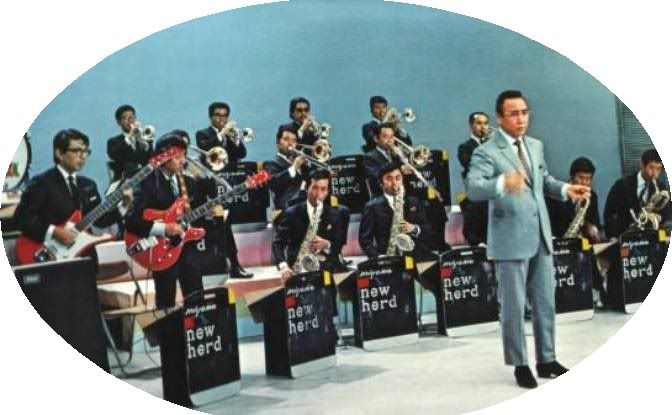 TOSHIYUKI MIYAMA & HIS NEW HERD (1970) In 1921, one of Japanese Jazz Giants, Toshiyuki Miyama was born in Chiba-City, Japan. He joined the Japanese Naval Military Band in 1939 and played upon deck of many Japanese warships such as Hyuga, Yamashiro, Nagato, or Yamato ... this valuable experience could let him go up the stairway to the herald of Japanese Jazz scene. Soon after the World War, he showed his ability as an alt-saxophone player and formed a jazz band Jive Aces in 1950, which performed and were approved in US Camp etc. In 1958 Jive Aces, with lots of musicians added, changed their band's name into NEW HERD (TOSHIYUKI MIYAMA & HIS NEW HERD). Although they were a back band on a dance floor in 1950s, NEW HERD established Japan Modern Jazz scene, much influenced by the members / 'bebop' arrangers Kozaburo YAMAKI or Hiroshi TAKAMI, in mid 1960s. Finally, 'Perspective' released in 1969, featuring Masahiko SATO, could be much appreciated and they had reached the peak of their popularity in Japanese 'Big Band' Jazz world. 'Yamataifu' (1972) was released exactly in their most active period. This album should break the common sense of Japanese Jazz easily, in collaboration with Masahiko SATO again, and won the Nippon Geijutsusai Yushu Prize, a very honourable one. TOSHIYUKI MIYAMA & HIS NEW HERD celebrated their 50th anniversary in 2000, and simultaneously, again won the Geijutsusai Yushu Prize, for the concert of their 50th anniversary. 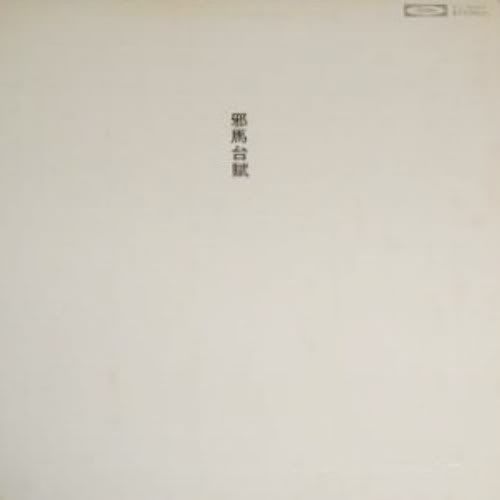 Yamataifu (1972; the first edition) - TOSHIYUKI MIYAMA & HIS NEW HERD / MASAHIKO SATO The strongest collaboration between a Japanese Jazz Giant (Toshiyuki MIYAMA) and a Japanese freely-improvised Avantgarde Jazz establisher (Masahiko SATO) in 1972, could win a honourable "Geijutsusai Yushu Prize", much appreciated in the whole Japanese Art world. Since Greg (Logan) recommended this album to me, I've checked NEW HERD's stuffs via YouTube or MP3 websites, and felt NEW HERD (without Masahiko SATO) have been (even now) a great Japanese 'big-band' Jazz band in this scene and played chiefly contemporary / nu-jazz, not with enough Avantgarde essence. Big big influence by Masahiko SATO, they could be injected into themselves I'm sure. As previously mentioned, Masahiko made a great success of his album "Amalgamation" (1971) all around the world (especially in Europe), and very naturally his motivation and attitude for free improvisation could invade into pure nu-jazz tower built by Toshiyuki's NEW HERD, just in the album "Yamataifu". Basically Toshiyuki is an alt saxophone player so we can feel the enormous power via their saxophone plays. Wonderful echoic sax dream, based on deep and heavy bass and drums. Fully drenched with bulky Nippon (Japanese) native flavour and tension, freely improvised instrumental battles go ahead inorganically ... but magnificent passion of each player we can feel ... obviously, even with spiritual or ghostly explosion here and there. Believe me, not simply traditional Japanese Avantgarde Jazz, but with full of nationalism and eccentricity in such a powerful big band. Over 35 minutes we cannot feel anymore but this palpitation. Feel directly this Japanese pride. Again thanks Greg for your brilliant recommendation. We Japanese are very happy everyone all around the world can enjoy their fascinating stuff. 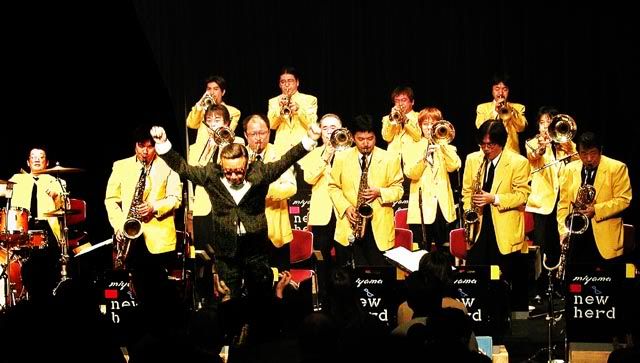 TOSHIYUKI MIYAMA & HIS NEW HERD (2002) - from their official website Thank you for reading this blog. |
||
 |
||
SaltyJon 
Special Collaborator 
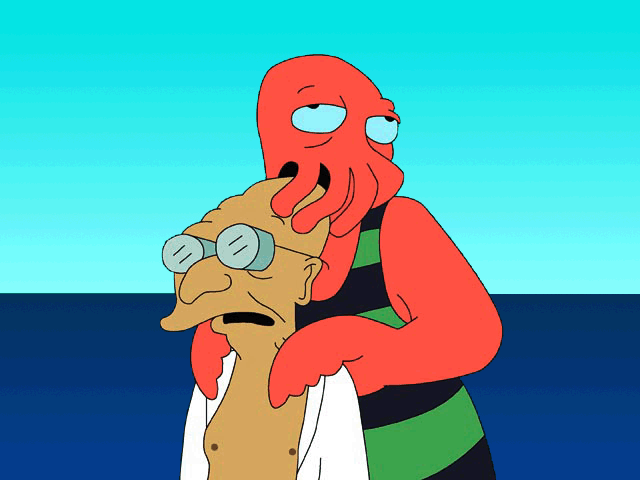
Honorary Collaborator Joined: February 08 2008 Location: Location Status: Offline Points: 28772 |
 Post Options Post Options
 Thanks(0) Thanks(0)
 Quote Quote  Reply Reply
 Posted: November 04 2010 at 00:19 Posted: November 04 2010 at 00:19 |
|
|
Hi Keishiro,
I've just reviewed an album by one of the most notorious Japanese groups, Acid Mothers Temple. The album was Nam Myo Ho Ren Ge Kyo. A very good album, in my opinion. Here's my review: http://www.progarchives.com/Review.asp?id=308175 Based on what I read, my description of the meaning of the title is grossly oversimplified, so forgive me for that.  Edited by SaltyJon - November 04 2010 at 00:31 |
||
 |
||
DamoXt7942 
Forum & Site Admin Group 

Avant/Cross/Neo/Post Teams Joined: October 15 2008 Location: Okayama, Japan Status: Offline Points: 17459 |
 Post Options Post Options
 Thanks(0) Thanks(0)
 Quote Quote  Reply Reply
 Posted: November 06 2010 at 02:42 Posted: November 06 2010 at 02:42 |
|
|
Thanks Arigatou-Gozaimasu for your great review Jon!
 Anyway, "Nam Myo Ho Ren Ge Kyo" is the clinker (?) in the sutra of Nichiren-shu, a sect of the Japanese Buddhism.  |
||
 |
||
DamoXt7942 
Forum & Site Admin Group 

Avant/Cross/Neo/Post Teams Joined: October 15 2008 Location: Okayama, Japan Status: Offline Points: 17459 |
 Post Options Post Options
 Thanks(0) Thanks(0)
 Quote Quote  Reply Reply
 Posted: November 13 2010 at 22:17 Posted: November 13 2010 at 22:17 |
|
|
Let me recommend GOLDEN AVANT-GARDE, another Japanese chamber rock project by Chihiro SAITO (Katra Turana, Lacrymosa).
  GOLDEN AVANT-GARDE were another short-lived project formed in 1985 by Chihiro SAITO, renowned as a founding member of KATRA TURANA and LACRYMOSA. Hoisting up a theme flag named 'incarnation of Cyber-rock', they gigged around Tokyo and released their eponymous album via a Japanese independent label Belle Antique in 1994. It's said they appeared on stage as Golden Avant-Garde Special with collaboration from Atsushi Hiroike (ex-Katra Turana) after Chihiro's cessation but were disbanded without any notice. For a while Chihiro had worked as a writer or an editor for Japanese progressive rock magazines 'Marquee' and 'Euro Rock Press'. 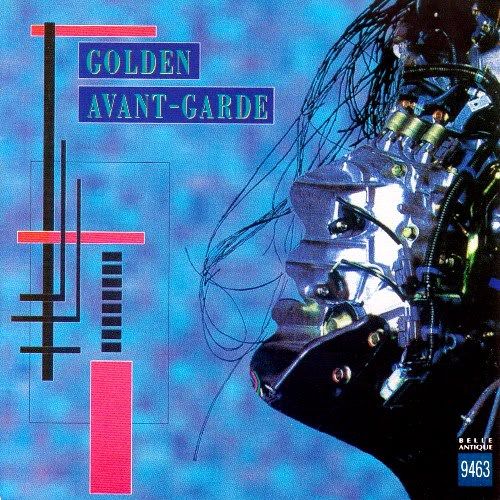 Golden Avant-Garde (1994) - GOLDEN AVANT-GARDE Another Japanese chamber rock world by Chihiro S., sandwiched between the former and the latter Lacrymosa"s", can sound more straight and rock-flavoured than Lacrymosa. GOLDEN AVANT-GARDE were formed as a Cyber-rock project (for me this sounds like digitally-refined chamber rock or something) between Lacrymosa's hibernation in late 1980s. Guess Chihiro and the other members should try to climb a keen ice-rock-berg up for grasping their soundscape with more sharp-edged 'eavy rock essence, and as a result, this eponymous album could be released in front of us, chamber rock freaks. Based on Lacrymosa's chamber- and avant-ish hemisphere, they played typical-triplet-based "rock" here and there upon another side. The second track (and also the last one) "Pierrot De Fou" can be called as their masterpiece, with twin guitar floods, deep bass attacks, and heavy drum kicks (the closest to Lacrymosa's flavour of all in this album though). The opening one "Koe Naki Zekkyo" have full of critical moments in scattered guitar sounds and dry electronic bass effects. Mysteriously, in the middle of this album we (at least I) can feel more eclectic texture (well, not only avantgarde but heavy, jazzy, electronic ... yes you know, exactly King Crimson just in Discipline period!) ... cannot ignore many Japanese progressive rock band should be much influenced by King Crimson or Pink Floyd, but so obviously as for them methinks. In my humble opinion, GOLDEN AVANT-GARDE should get Discipline-y, with a removal of serious chamber-ism from Lacrymosa, shouldn't they? I can understand why Chihiro should reunite Lacrymosa in mid 1990s and come back to such a serious chamber rock scene ... he might lose his point of view for a novel soundgarden sadly I imagine? Anyway, a good album (not essential though), without any suspicion. However, I consider this album will not reissue or re-release in future at all. Because there's a banned (restrained?) word anywhere in this album. It's a pity. Thank you for reading this blog. Edited by DamoXt7942 - December 10 2010 at 16:59 |
||
 |
||
Takeshi Kovacs 
Forum Senior Member 

Joined: September 27 2005 Location: United Kingdom Status: Offline Points: 2454 |
 Post Options Post Options
 Thanks(0) Thanks(0)
 Quote Quote  Reply Reply
 Posted: November 14 2010 at 15:12 Posted: November 14 2010 at 15:12 |
|
|
Damo - just wanted to say what an excellent job you and all the other contributors are doing with this thread.
|
||
 Open the gates of the city wide.... Open the gates of the city wide.... Check out my music taste: http://www.last.fm/user/TakeshiKovacs/ |
||
 |
||
DamoXt7942 
Forum & Site Admin Group 

Avant/Cross/Neo/Post Teams Joined: October 15 2008 Location: Okayama, Japan Status: Offline Points: 17459 |
 Post Options Post Options
 Thanks(0) Thanks(0)
 Quote Quote  Reply Reply
 Posted: November 20 2010 at 20:29 Posted: November 20 2010 at 20:29 |
|
 And I'm sooo glad your avatar has been added in Eclectic library (Revival / Al Basim).  |
||
 |
||
Post Reply 
|
Page <1 2122232425 52> |
| Forum Jump | Forum Permissions  You cannot post new topics in this forum You cannot reply to topics in this forum You cannot delete your posts in this forum You cannot edit your posts in this forum You cannot create polls in this forum You cannot vote in polls in this forum |